INCLUSIVITY AWARENESS
Notes on NEURODIVERSITY
Discover how neurodiversity can affect clients & the nail tech role with REBECCA HITCHON, who gathers advice to accommodate neurodiverse needs
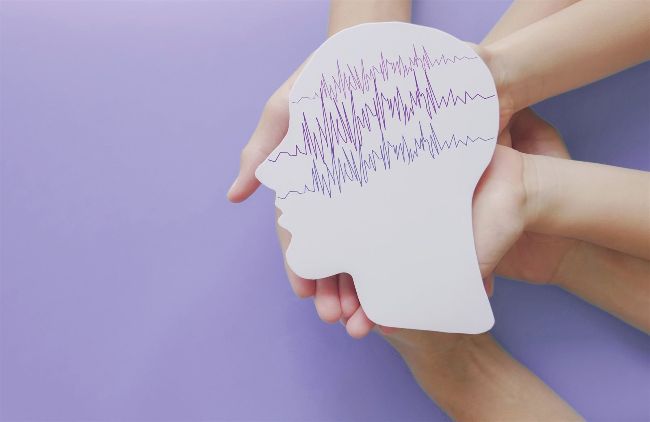
Do you know what neurodiversity is? Half of beauty pros identify as neurodivergent and 27% work with a neurodivergent team member*, so it’s likely you do.
The Brain Charity states: ‘some people’s brains simply work in a different way. For at least 20% of the UK’s adult population, these differences mean they are not seen as ‘neurotypical’ and may be diagnosed with conditions such as autism spectrum condition (ASC), dyslexia and attention deficit hyperactivity disorder (ADHD). Neurodiversity is the concept that brain differences are natural variations – not deficits, disorders or impairments.’ *Results from an April 2024 survey conducted by Vagaro.
So how do these differences affect nail stylists and their clients, and how can neurodiverse needs be supported in the nail space? Neurodiverse nail technicians candidly share their experiences and recommendations…
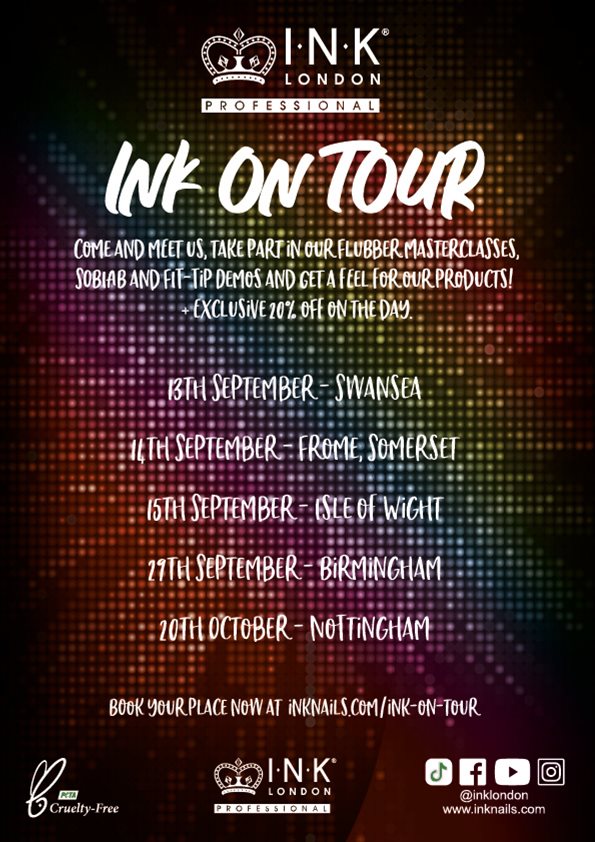
“By catering to neurodiverse needs in ways that are not yet commonplace, you can provide a safe space for clients to express themselves and feel comfortable.”
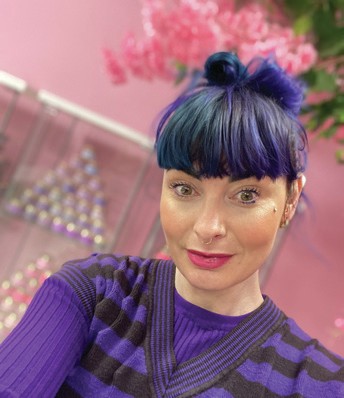
Tech tales Danielle Brindley, Scratch Stars Polish & Paint Artist of the Year, Mixed Media Artist of the Year 2024 & Glitterbels educator

/missbrinnynailartist

@missbrinnynailartist
Sensory overwhelm
Overstimulation can be an issue for neurodiverse individuals, with common triggers including sounds, lights, smells, sensations and temperature. Various conversations happening in the same room, the sound of equipment and the volume and type of music being played can cause issues. For clients experiencing this, consider offering silent appointments or services at quieter times.
Lights and smells can be overwhelming, such as bright lighting, room scents and fragranced products. Light focused on clients’ hands and a choice of fragrance-free products can be beneficial. Sensation of touch can also be an issue, such as when prepping nails and sitting still for a long time. Consider encouraging neurodiverse clients to move around between stages of their appointments.
Organisation impacts
Planning and organising can be challenging for neurodivergent individuals. Online booking systems can send appointment reminders to clients, and cater to those who aren’t comfortable talking on the phone. A phone number should also be available, as some people prefer to speak to a person. Your consultation form or conversation should ask if there are any accommodations you can make for the client. Asking open-ended questions and showing an interest will help them feel comfortable to express issues. Do not use phrases like ‘we all feel like that’, as this can make the person feel unheard.
Remove as many anxiety-provoking questions before the appointment. For example, describe and share photos of your workspace and how to find it, detail where to park and explain what to expect from treatments. Making a friendly phone call before a client’s first appointment can put them at ease, especially when meeting someone new.
Government support
Access to Work is a government scheme for people with an official diagnosis that affects their job. An interview takes place, discussing work requirements and difficulties. Examples of support provided are a mentor, larger computer screen and apps to aid organisation. Find out more at www.gov.uk/access-to-work

Tech tales Emily Langford, Scratch Stars Gel Polish Stylist of the Year finalist 2024 & owner of Studio 109, Holton-le-Clay, Lincolnshire
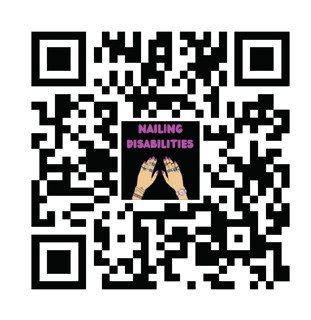
Scan to join Nailing Disabilities
Every neurodiverse experience is different. I often suffer with overwhelm and burnout, finding the daily running of a business a lot to process. However, I believe that neurodiversity helps me to be creative and imagine ideas for designs.
I believe that there is a lack of support for neurodiverse people. I’ve been on a waitlist for an assessment for two years, after fighting for three years to get onto it. Some people can wait for up to 10 years! I have found ways to support my needs in the workplace, such as taking regular breaks and days off to avoid overwhelm and burnout, and listening to music to help me focus. If I’m feeling particularly sensitive to noise, I use Loop Earplugs, which block out background noise but allow me to talk to clients. There is also a great resource for nail techs, which can help them feel less alone, called Nailing Disabilities. Yasmin Hodge of Gels by Yas launched the Facebook group, in which pros can discuss challenges and find support.
My studio is a comfortable space, full of my favourite things and features to help myself and neurodiverse clients. There are LED lights, which can be dimmed and controlled to avoid sensory overload. I also have my iPad to hand so music can be played. If clients require extra mental stimulation, I offer many TV streaming services. Alternatively, if they prefer a quieter appointment, I am happy to turn off any sound. Neurodivergent needs change daily, so one day a person might love having music on, but the next they may require quiet.
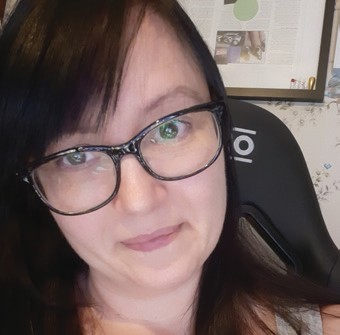
Cheryl Holland
Group support
Neurodiversity in Nails is a Facebook group set up by Cheryl Holland, owner of Spicy Sakura Nails in Worksop, Nottinghamshire. “I created the group to form a safe space for myself and others who are neurodiverse,” she explains.
“A diagnosis is not needed, but you must be neurodiverse to join. I want the group to motivate neurodiverse nail techs, help them embrace their neurodiversity and share ways to navigate the nail industry.
“It is important to me that Neurodiversity in Nails allows members to speak out and ask questions without fear of criticism or hate,” adds Cheryl. “Neurodiverse people may have RSD (rejection sensitivity dysphoria), meaning they have an emotional reaction to negative judgments, exclusion or criticism beyond what most people feel. I have been called awful names in groups before, due to misunderstanding of my direct approach, as a result of my neurodiversity.
Posts by Cheryl in the Neurodiversity in Nails group.
“Neurodiversity in Nails posts include a ‘no pressure accountability’ post on Mondays, where members share two goals for the week. A check-in happens each Friday to see if the goals have been achieved. If not, there is no sense of shame and the aims can be set for the following week. For those who experience overwhelm, choosing two aspects to focus on can be helpful. Other posts focus on motivation and self-care, and I plan on creating neurodiverse-friendly nail art tutorials in future.”
Themed talons
At the Scratch Stars Awards 2024 practical judging day, Emily Langford created a nail design inspired by her ADHD experiences. She shares: “The little fingernails featured tablets to represent insomnia. On each ring finger, I painted a melting clock with a question mark inside to portray time blindness. I lose track of time easily, either through hyperfocus or distraction.
“The middle fingers detailed brains surrounded by clouds to represent brain fog. It can feel like I’m walking through clouds and I lose my train of thought. On the index fingers were hearts with tears, symbolising RSD (rejection sensitivity dysphoria). On the thumbs, I painted headphones to represent sensory overwhelm and how I use music to calm myself.”
Top tip
“It can be frustrating when clients are fidgety, but allowances need to be made for neurodiverse clients,” notes Cheryl. “To accommodate this, I place sensory objects on my nail desk. These can be visual, such as glitter wands, sandscape pictures and lava lamps, or tactile, such as stress balls and fidget spinners.”

Scan here to join the Neurodiversity in Nails group

Tech tales Chantelle Parsons, owner of Blush, Christchurch, New Zealand

/blushnailartist

@blushnailartist
I was diagnosed with adult ADHD in 2021, and talk about this openly on my business Instagram page, so clients know that they’re visiting a non-judgmental place of understanding. By catering to neurodiverse needs in ways that are not yet commonplace, you can provide a safe space for clients to express themselves and feel comfortable. This could give you loyal clients who appreciate your value.
Some main issues for neurodivergent individuals are anxiety, overwhelm and sensory issues. I’ve found that having my greyhounds in the studio is very comforting, as animals have a calming presence and provide a topic of conversation when small talk is a struggle. Small talk can be challenging for myself and neurodivergent clients, so I have a television in the studio, with the remote control placed near clients. This means they can cast whatever they like to the TV, without having to ask me to put it on for them.
Another item that I’ve put a lot of thought into is my client chair. I’ve found this to be one of the key factors that affects sensory issues, as clients can be sitting in it for hours. My chair feels like a cloud: it’s comfy, cushioned and big enough to avoid digging into hips, while easy to get out of. I also put an electric blanket on it for clients who are cold or want further comfort.
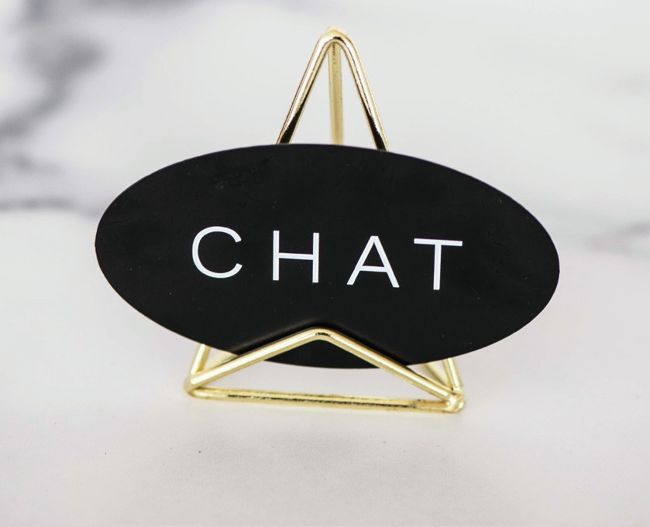
The Chat or Chill Card – ARCHETYPE
£20 inc VAT www.clientexperiencecard.com Product pick
My hairdresser uses the Client Experience Card, which features the word ‘chat’ on one side and ‘chill’ on the other. Clients can flip this to show how they’re feeling at their appointment, without awkwardness. The tool was launched by Tara Abramowicz, a hairstylist & educator who is autistic. They based the card on their own challenges in understanding client comfort levels regarding conversations.
“Neurodivergent needs change daily, so one day a person might love having music on, but the next they may require quiet.”
Workplace handbook
Universal Music’s Creative Differences: A handbook for embracing neurodiversity in the creative industries (second edition) provides insight on how to accommodate neurodiverse job applicants, interviewees, employees and freelancers. Scratch rounds up its key advice:
• Provide neurodiversity awareness education: Ensure this is company-wide and led by neurodiverse people, to foster understanding and allow neurodiverse workers to open up about their needs.
• Appoint mentors for neurodiverse staff.
• Personalise the working environment: Consider individual control over light and sound, a quiet working space and private area for overwhelmed workers.
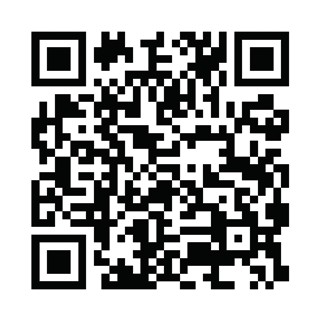
Scan to read the handbook
Get educated
Workplace training provider, Neurodiversity Workshops, leads online and in-person sessions globally. These focus on raising awareness and supporting neurodivergent colleagues and employees. Neurodiversity Workshops also offers workplace assessments, guidance programmes, coaching and support for neurodivergent employees and their families.
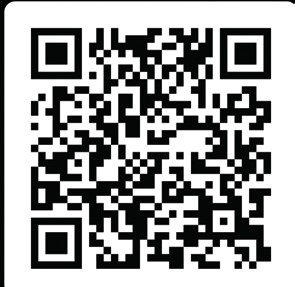
Scan to find out more

Tech tales Chloe Blackwood, owner of CB Nails and Beauty Buxton, Derbyshire

@cbnailsandbeauty_buxton_

/CBnailsandbeautybuxton
My personal experiences with ADHD inspired me to open CB Nails and Beauty Buxton. Carrying out nail and beauty treatments helps with the condition, as it quietens my mind and keeps me calm. My goal was to create a safe salon space, offering one-to-one appointments to ensure every client feels comfortable and cared for. I understand the challenges neurodiverse individuals face, especially in overstimulating environments.
Neurodiverse clients often experience sensory sensitivities, anxiety and difficulty with unexpected changes. A traditional salon environment can be overwhelming due to noise, strong smells and a bustling atmosphere. Many of my clients have expressed gratitude for feeling understood, and are able to relax in my salon. One of the most well-received aspects has been silent appointments.
As someone with ADHD, I prioritise organisation and structure. I rely on digital planners and scheduling apps to keep track of appointments and tasks. Having a calm and organised workspace, with designated areas, helps me stay on track.
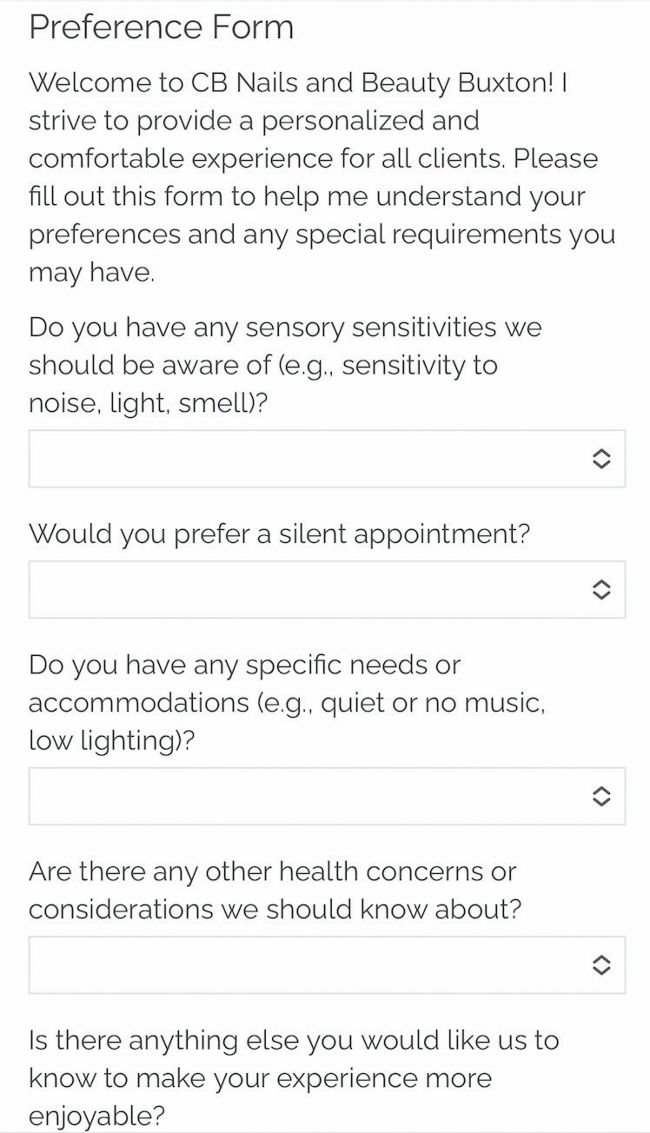
CB Nails and Beauty Buxton’s preference intake form.
“Neurodiverse clients often experience sensory sensitivities, anxiety and difficulty with unexpected changes. A traditional salon environment can be overwhelming due to noise, strong smells and a bustling atmosphere.”
Chloe’s top tips for accommodating neurodivergent needs:
• Offer private and silent appointments: One-to-one sessions can minimise sensory overload and anxiety, and silent appointments suit clients who prefer a quiet, restful experience.
• Use a preference intake form: Once clients have made a booking via my online system, there is a form to gather information about their preferences, sensory sensitivities and special requirements, if they wish to share these. This helps tailor appointments to each client’s unique needs.
• Be patient and understanding: Take time to understand each client’s needs and preferences, and be adaptable to changes in these.
• Communicate clearly: Explain each step of the appointment process so clients know what to expect.
• Introduce sensory stress toys: I have stress toys in my salon, which are perfect for squeezing away tension, including a ‘Calma Llama’ to provide calming sensory input. Sensory toys can reduce anxiety and improve focus, and have also been excellent for clients seeking distractions during treatments like waxing.
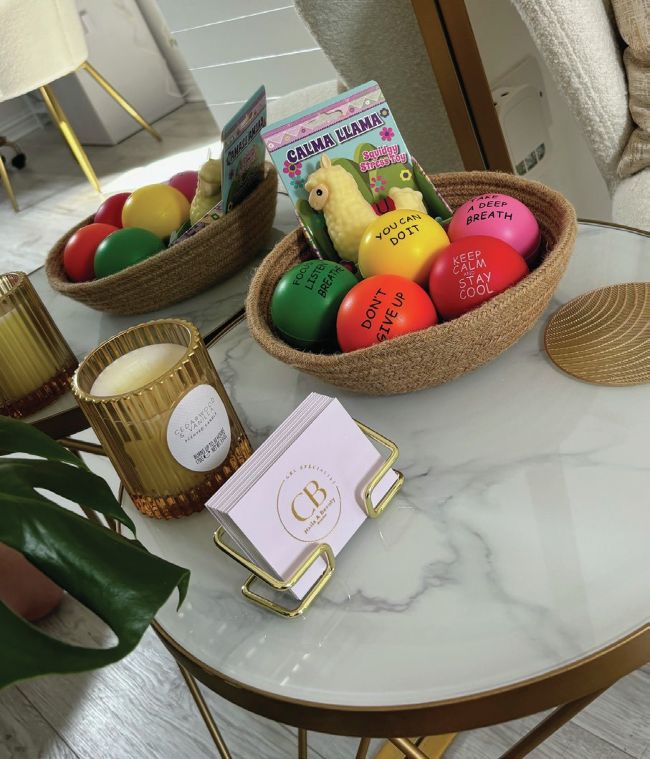
Stress toys available at CB Nails and Beauty Buxton.